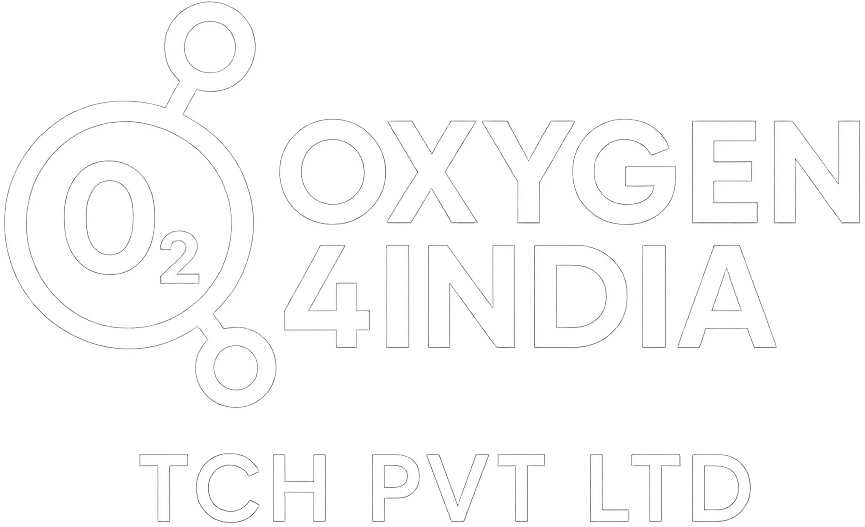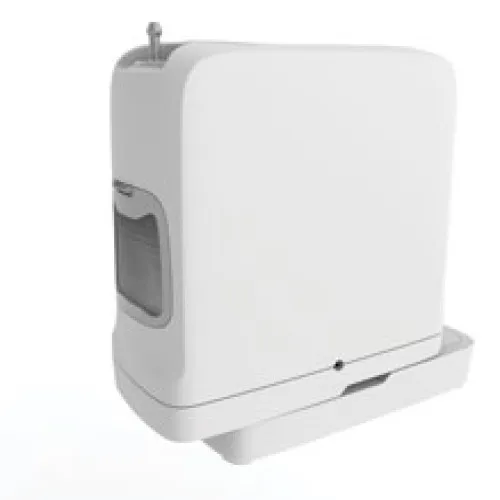CPAP VS BiPAP: What’s the Difference? – Complete Guide 2025
CPAP VS BiPAP: What’s the Difference? – Complete Guide by Oxygen4India
Understand all key differences between CPAP and BiPAP machines to choose correctly for sleep therapy. The specialists at Oxygen4India guide you expertly through sleep therapy selection and support. Due to specific medical and comfort needs, thousands of patients select either CPAP or BiPAP therapy from Oxygen4India.com. Learn how these two essential sleep therapy devices work and how to make the best choice.CPAP Machines (Continuous Positive Airway Pressure)
- Deliver continuous steady air pressure via a mask, keeping airways open during sleep.
- Key for treating Obstructive Sleep Apnea (OSA): Prevents airway collapse due to throat tissue.
- Features:
- One consistent pressure setting, day and night.
- Continuous airflow during inhalation and exhalation.
- Less complex technology; fewer components.
- Generally lower cost than BiPAP.
BiPAP Machines (Bi-level Positive Airway Pressure)
- Provide two pressure levels:
- IPAP (Inhalation): Higher pressure when you breathe in.
- EPAP (Exhalation): Lower pressure when you exhale.
- Features:
- More natural, easier breathing feel for many patients.
- Advanced sensors and technology; adapts to your breathing cycle.
- Ideal for complex/central sleep apnea, COPD, heart conditions, or high pressure needs.
- Generally more expensive.
Side-by-Side Comparison Table
| Feature | CPAP Ventilation | BiPAP Ventilation |
|---|---|---|
| Pressure Delivery | Single constant pressure | Dual: higher for inhale, lower for exhale |
| Best For | Obstructive sleep apnea, snoring, simple post-op care | Complex apnea (central/mixed), COPD, cardiac/neuro disorders |
| Price Range | ₹18,000–₹95,000 | ₹45,000–₹3,50,000 |
| Breathing Comfort | Fixed pressure, may require adjustment | More natural, easier exhale; suits higher pressures |
| Power Consumption | 30–60W | 60–120W |
Who Should Use Which?
- CPAP:
- Best for simple obstructive sleep apnea, snoring, mild to moderate sleep disorders, or as a first-time sleep therapy user.
- Single pressure setting is effective and budget-friendly.
- Not ideal if required pressure exceeds 15 cmH₂O or if exhaling feels difficult.
- BiPAP:
- Needed for central/complex sleep apnea, severe COPD, cardiac/neuro disorders, or when CPAP isn’t comfortable or effective.
- Dual pressure eases exhalation and adapts to changing breathing patterns.
- Recommended if CPAP isn’t tolerated or for higher pressure needs.
Typical Prices & Packages at Oxygen4India
- Basic CPAP: ₹18,000 to ₹35,000
- Auto CPAP: ₹35,000 to ₹85,000
- Premium CPAP: ₹85,000 to ₹1,25,000
- Basic BiPAP: ₹45,000 to ₹85,000
- Advanced BiPAP: ₹85,000 to ₹1,50,000
- Professional BiPAP: ₹1,50,000 to ₹3,50,000
Core Functional Differences
- CPAP workflow:
- Filtered air intake
- Single-pressure generation
- Continuous steady delivery via mask
- Airway kept open, simple monitoring & adjustment
- BiPAP workflow:
- Advanced sensors track breath cycles
- Auto-switching between IPAP and EPAP with smart detection
- Adaptive algorithms for individual breathing patterns
- Provides supportive, comfortable ventilation for complex cases
Advanced Comfort & Technology Features
- APAP: Self-adjusting auto-pressure (CPAP+)
- Heated humidifiers for dryness prevention
- Ramp up: Pressure increases slowly for easier falling asleep
- Data recording: Track therapy compliance and improvements
- Smartphone connection/app support
- Leak compensation and cloud data sync (more common in BiPAP)
- Predictive maintenance and adaptive algorithms (BiPAP advanced)
When to Choose Each Device
- Start with CPAP for simple sleep apnea, especially first-time users.
- Transition to BiPAP if CPAP is uncomfortable, insufficient, or for complex respiratory needs.
- BiPAP often recommended by specialists for COPD, complex apnea, neuromuscular or cardiac patients, and whenever dual pressures are clinically required.
Maintenance & Ownership Considerations
- Replace masks every 6 months; filters every 3 months
- Annual maintenance and calibration
- Electricity use: CPAP (lower), BiPAP (higher)
- Oxygen4India offers trial programs for both devices—test comfort before purchase
- Device lifespan: 5–7 years with proper care and regular service from Oxygen4India
Expert Services & Support by Oxygen4India
- Expert sleep therapy consultation based on your condition
- Try-before-you-buy comfort programs for CPAP & BiPAP
- Setup, customization, mask fitting, and ongoing compliance monitoring
- Insurance claim assistance (CPAP & BiPAP both covered by many policies)
- Complete range of accessories: masks, humidifiers, tubing
- Pulse oximeters available for monitoring: see here
Patient Testimonials
“I chose CPAP from Oxygen4India for sleep apnea. I now sleep all night plus I wake up refreshed, but adjusting took 3 weeks. The auto-adjusting feature is critically important.” – Rajesh Kumar, Bangalore “Breathing feels natural now. Oxygen4India’s team helped choose settings perfect for me, and my COPD symptoms improved considerably after I switched to BiPAP after struggling with CPAP pressure.” – Dr. Priya Sharma, Delhi
- Qualified technicians analyze your sleep study for best fit
- Personalized comfort and pressure titration for every patient
- Showroom trials available before you buy
Ready to Choose?
Both CPAP and BiPAP selection depend on your unique needs. Get personalized advice and a demonstration from Oxygen4India.com’s sleep therapy experts.- 🌐 Website: www.oxygen4india.com
- 📞 Speak to local specialists or book a trial
- 📧 Get expert email support for all questions
- 📍 Visit showrooms and experience both machine types in person






